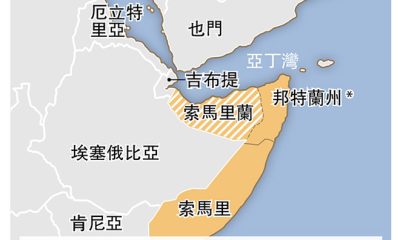觀點
Emil Avdaliani:The Saudi-Pakistani Defense Deal Could Be a Gamechanger for the Middle East

【明報文章】In a major development Saudi Arabia and nuclear-armed Pakistan inked the Strategic Mutual Defense Agreement (SMDA) on September 17 which has a potential to shift a balance of power in one of the most sensitive regions of the Middle East.
The defense agreement officially calls for mutual defense. Yet, when it comes to other details (which remain classified), it is all about strategic ambiguity that creates a sense of a potential shift the Middle East geopolitics. The agreement leaves numerous questions unanswered as to what the partnership really means; what will Pakistan really do militarily in case Saudi Arabia comes under external assault; will Islamabad use its nuclear arsenal to shield the Kingdom?
Whatever the defense deal would entail in the event of a major conflict involving either sides, one aspect is clear – Pakistan from now on will become increasingly engaged in the Middle East geopolitics. So far, its nuclear shield has been of strategic significance as an instrument of deterrence against India. With the deal with Saudi Arabia, however, Pakistan’s military capabilities will be also shifted toward the Persian Gulf, the vital arena for global shipping as well as energy flows.
But there are also other reasons which motivated Pakistan. Firstly, Islamabad dearly needs cash infusion into its economy and Riyadh is expected to provide these vital resources that will boost Pakistan’s military. Secondly, by getting closer to Saudi Arabia, Pakistan also wants to balance India, which over the past years has expanded its ties with the Gulf Cooperation Council (GCC) and its critical member, the Saudi monarchy in particular. Their relations are driven by the development of commerce, new trade routes and growing security cooperation.
Though the signing of the Saudi-Pakistani pact might have come as a surprise, it was nevertheless a result of a few major long-term developments. First is the decline in the United States’ willingness and possibly even ability to defend the wealthy Arab states of the Persian Gulf. This sentiment is not new. All began in 2019 when Saudi oil facilities came under direct attack from the Houthis Washington did not stand up to defend its key ally. This pushed the kingdom to re-assess its security environment and most of all it laid bare the gaps in United States-Saudi strategic partnership. From then on, the status of an unofficial ally no longer sufficed for Riyadh and the latter began to work on the very idea of developing an officially allied relations with the United States. That would mean that irrespective of what administration comes to power in Washington, the alliance would remain guaranteed.
The 2019 attack, however, was only the beginning. In September Israel bombed a part of Qatar’s capital as a pre-emptive measure against Hamas which has had headquarters of its political wing in Doha. But before the Israeli bombing, Qatar came under another attack in June when Iran sent a wave of missiles as a response to Israel’s and the US’ attacks on the country’s nuclear and military infrastructure. The conclusion was unmistakable. The security of the Arab countries of the Persian Gulf was no longer immune to external military intervention. What is more perplexing is that Israel bombed America’ major ally, which served as a bitter reminder to Doha and its Arab neighbors that without a formal security pact with the United States, the latter could always find a way to abstain from intervening to defend. The damage to the United States’ posture was significant prompting the country’s president to pledge that any armed attack on Qatar would be seen as a threat to the United States.
This, however, will not change the accelerating pace of Saudi Arabia and other members of the GCC to build multi-aligned military and security partnerships with other powerful players. Hedging now will be elevated to a whole new level in the foreign policy of Saudi Arabia, Qatar and others. Reliance on the United States will no longer be seen as a realistic approach and instead, the Arab states, beyond the multi-vector foreign policy, will likely push for a more integrated defense within the GCC. Some work has already been done on that, but the structure still remains loose and will need much greater cohesiveness in the command structure.
Therefore, the Saudi-Pakistani pact is more a result of long-term shifts in the Middle East where the United States is no longer as invested in the security of the GCC as it has been assumed up until now. This will in turn pave the way for greater involvement of other actors in the region.
Emil Avdaliani is a professor of international relations at the European University in Tbilisi, Georgia, and a scholar of Silk Roads. He can be reached on Twitter/X at @emilavdaliani.
[Emil Avdaliani]
日報新聞-相關報道:
Emil Avdaliani:沙特與巴基斯坦防務協議 或改變中東局勢 (2025-10-24)





